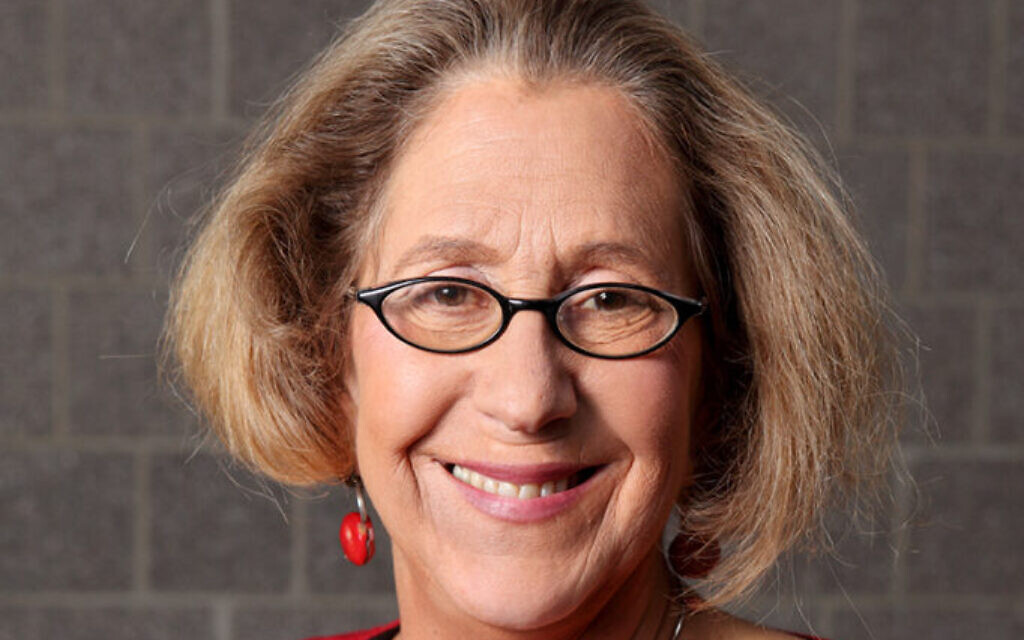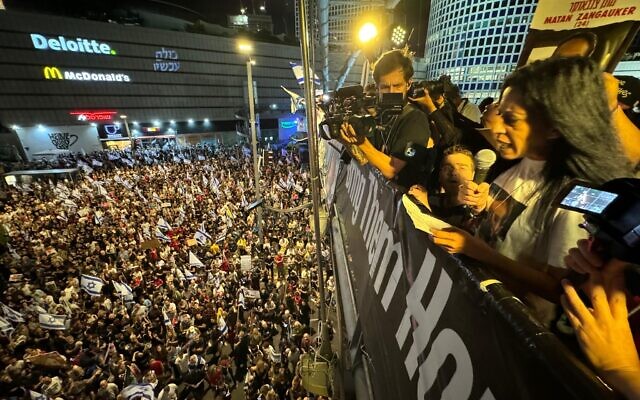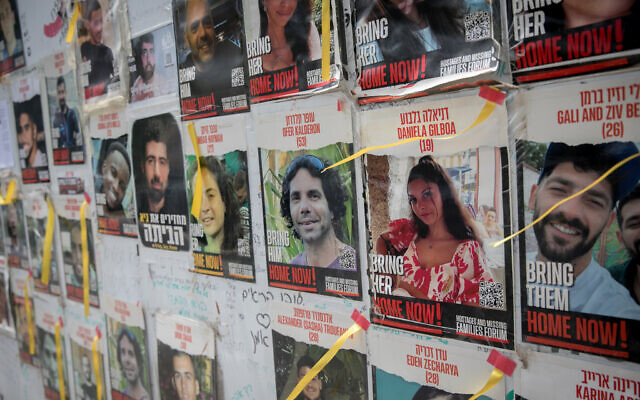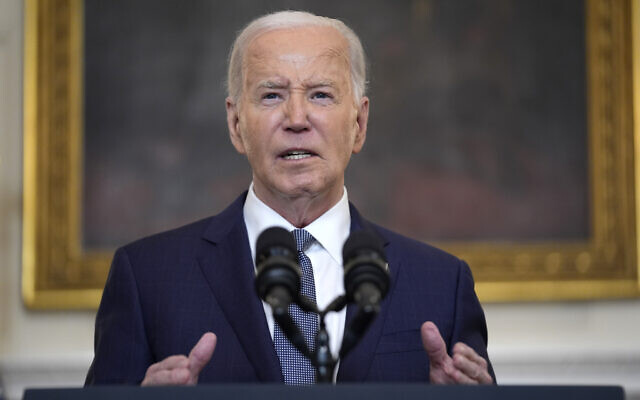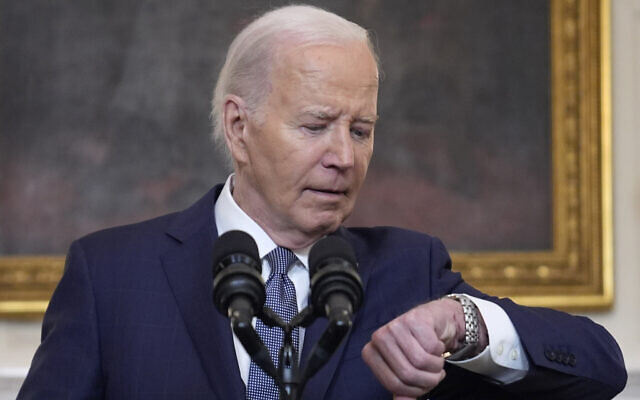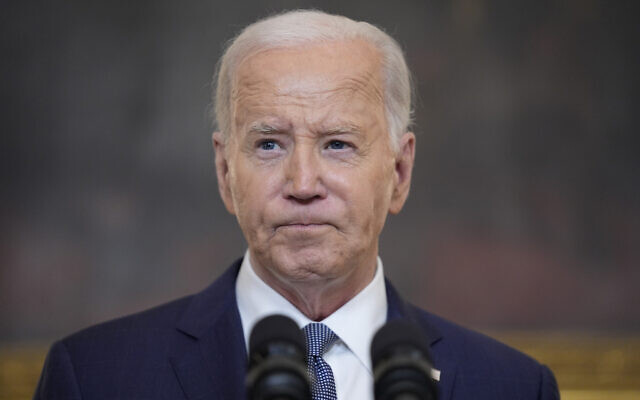Retiring early due to antisemitism, a professor paints a dire picture of US academia
Barbara J. Risman felt that the atmosphere among University of Illinois faculty after October 7 was too much for her to bear as a Jew. Her colleagues secretly tell her she’s right
Prof. Barbara J. Risman never expected to retire early from the University of Illinois at Chicago, a place she’s called her “beloved academic home” for the past 17 years.
A College of Arts & Sciences distinguished professor of sociology, Risman was committed to the university’s social justice mission. But after the October 7 Hamas onslaught on southern Israel, both subtle and overt displays of anti-Israel and antisemitic behavior have gripped the campus to the point that Risman finds she no longer recognizes the institution.
“UIC prides itself on being progressive and engaged. It’s become a very alienating place to be right now. It’s shocking when you think you are a part of a community and you realize in many ways that you are not,” Risman said in a Zoom interview from her campus office.
Risman, who spent more than 10 years co-chairing the university-wide committee on faculty equity and once enjoyed a longstanding affiliation with the Department of Women and Gender Studies, recently penned an opinion piece for The Chicago Tribune about her experience.
“UIC is no longer an institution comfortable for me, as a Jew who believes Israel has a right to exist,” Risman said, adding that according to the American Jewish Committee, more than 80 percent of Jews in America share her belief. “When university departments and programs publish statements implying support for the destruction of the state where more than half of all Jews alive today live, they have crossed the line from simple micro-aggressions against Jewish students and faculty to outright institutional antisemitism,” Risman wrote in her op-ed.

And while an anti-Israel encampment hasn’t yet sprouted on UIC’s campus as many others have on campuses around the nation, there have been numerous concerning incidents since last October. In November 2023, posters of Israeli hostages held by Hamas were ripped down, and anti-Zionist rhetoric and shows of support for terrorism peppered several campus demonstrations.
Days after Hamas terrorists slaughtered some 1,200 people in southern Israel and kidnapped 252 to the Gaza Strip while burning, torturing, raping and dismembering civilians young and old — often while filming the violence — and well before Israel responded militarily, UIC faculty in the Women and Gender Studies and the Black Studies departments posted a joint statement on their websites to let Palestinian and Muslim students know that faculty members were concerned for their welfare.
Moreover, the faculty of both departments denounced “the ongoing escalation of settler colonial violence” and expressed solidarity with those “targeted by colonialism, racism, heteropatriarchy, ableism and state-sanctioned violence,” Risman wrote.
There was no mention of antisemitism, the terrorist killings, or the 252 hostages taken, she said.
“When it comes to Jews, they do not care. Antisemitism is not considered one of those ‘isms’ the university has to be concerned about,” Risman said.
The following interview has been edited for brevity and clarity.
The Times of Israel: You said you’re retiring early in large part because of the antisemitism coming from various departments and the University of Illinois at Chicago administration itself.
Prof. Barbara Risman: I am acutely aware that the definition of antisemitism is hotly debated at the moment. I don’t think that calls for a ceasefire or criticism of [Israeli Prime Minister Benjamin] Netanyahu are antisemitic.
I consider it antisemitic when there is a lack of concern for Israeli deaths after October 7 and when there is a call for the destruction of Israel, where more than half of all Jews live. Many countries were created after World War II, but the only one that people call to destroy is the only Jewish one.
I was on sabbatical in Paris when October 7 happened, so I was seeing everything from afar. What I saw was concern [from the Women and Gender Studies and Black Studies department] for what Palestinian students were experiencing, but no concern for Jewish or Israeli students who were suffering. It was heartbreaking and alienating and I decided that I couldn’t be part of it. So I immediately resigned my affiliation with the Women and Gender Studies department.
Can you talk about the kind of feedback you got from your op-ed?
I expected to get a lot of personal blowback from my colleagues. Instead, what I got was a lot of secret thank-yous from all over campus from students, faculty, staff, administrators. I now know more Jews on campus than I ever did in the past 17 years.
They all said, “You are really brave. I would never have done that.” People now contact me when something happens because I’m the only one who has said anything publicly.

Can you describe the tenor of the pro-Palestinian demonstrations and the overall climate on campus since October 7?
The demonstrations are never framed as being about ending the war, helping Gazans, or rebuilding Gaza; all things I could get behind. Instead, everything is framed as an assault on the right of Jews to have a homeland. That’s when I personally feel attacked. That’s when it becomes antisemitic.
Jewish students no longer want people to know they’re Jewish. Israeli students no longer want to speak in public because their voices will call attention to them.
Why do you think there have been no encampments at UIC?
As a sociologist, I think it’s partly because it’s a kind of privileged thing to say, “I don’t have to care about what [a risk of academic discipline] does to my future. I don’t have to hold two jobs to help pay for college, to eat, to help with rent and so I can go live in the grassy green for two weeks.”
The majority of our students are working-class people who live with their parents. Most of them work a job or two in addition to going to school. They’re very concerned about upward mobility. They don’t have parents paying $80,000 a year.
Is there a future for Jews at UIC?
I’m lucky that I’m in a position to retire. I think it would be much harder to be in my position if I were 10 years younger. I’ve talked with several other faculty who are leaving the university. They are in non-tenure track positions and are Jewish. It is not worth it to them to stay.
At the moment, I think it’s more comfortable being Jewish in a professional setting outside the university. I think that’s a very sad thing to say, but I think it’s probably accurate.
Are you relying on The Times of Israel for accurate and timely coverage right now? If so, please join The Times of Israel Community. For as little as $6/month, you will:
- Support our independent journalists who are working around the clock;
- Read ToI with a clear, ads-free experience on our site, apps and emails; and
- Gain access to exclusive content shared only with the ToI Community, including exclusive webinars with our reporters and weekly letters from founding editor David Horovitz.

We’re really pleased that you’ve read X Times of Israel articles in the past month.
That’s why we started the Times of Israel eleven years ago - to provide discerning readers like you with must-read coverage of Israel and the Jewish world.
So now we have a request. Unlike other news outlets, we haven’t put up a paywall. But as the journalism we do is costly, we invite readers for whom The Times of Israel has become important to help support our work by joining The Times of Israel Community.
For as little as $6 a month you can help support our quality journalism while enjoying The Times of Israel AD-FREE, as well as accessing exclusive content available only to Times of Israel Community members.
Thank you,
David Horovitz, Founding Editor of The Times of Israel


